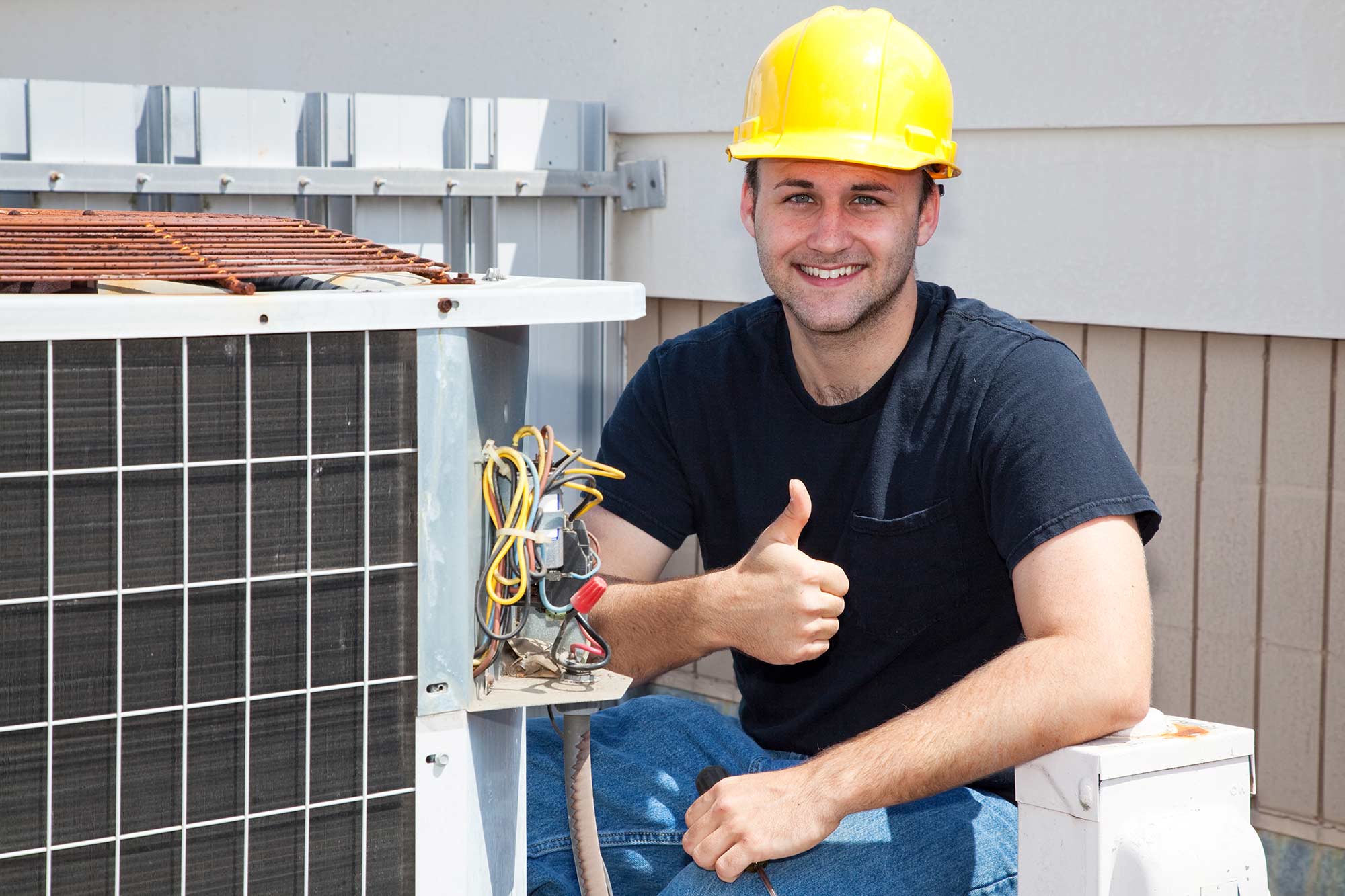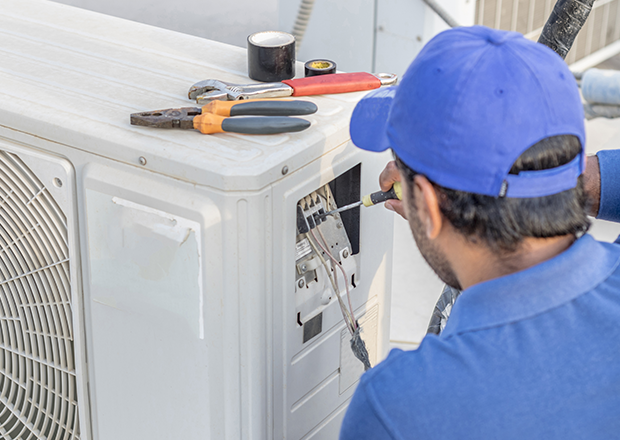Comprehending HVAC: Common Troubles of Air Conditioner Systems and Their Solutions
A/c systems play a vital role in maintaining interior comfort. Air conditioning systems commonly encounter usual troubles that can prevent their performance. Issues like insufficient air conditioning, unusual noises, and regular cycling can suggest much deeper mechanical worries. On top of that, water leaks and undesirable odors can compromise air high quality. Understanding these challenges and their remedies is vital for efficient maintenance. What actions can property owners require to ensure their air conditioning devices run successfully?
Inadequate Cooling Efficiency
What creates poor air conditioning performance in a cooling and heating system? Several factors can contribute to this problem. A typical reason is an unclean air filter, which restricts air flow and reduces cooling down effectiveness. Furthermore, low refrigerant degrees as a result of leaks can hinder the system's capability to soak up warm properly. Another possible problem might occur from a malfunctioning thermostat, leading to wrong temperature readings and improper cooling cycles. Blocked or dirty condenser coils can likewise avoid warm dissipation, further impacting efficiency. Ductwork issues, such as leakages or blockages, can result in unequal cooling throughout a space. Determining these issues immediately is important for maintaining optimal cooling and heating function and making certain a comfy indoor atmosphere. Routine upkeep and inspections can assist alleviate these problems and boost the system's general efficiency.
Unusual Sounds Coming From the A/c Device
A selection of unusual noises originating from an air conditioning system can indicate underlying issues that need focus. Common sounds consist of rattling, which might suggest loose components or particles within the system. Hissing noises usually direct to refrigerant leakages, endangering the system's efficiency. A grinding noise might suggest worn-out bearings or electric motor issues, while a piercing screech could signal a problem with the compressor or a sliding belt.
Each of these noises functions as an indication that something might be awry, potentially leading to even more considerable damages otherwise resolved quickly. Home owners need to avoid overlooking these acoustic cues and take into consideration getting in touch with a certified HVAC professional for medical diagnosis and repair service. Prompt intervention can not only recover functionality but additionally expand the life-span of the device. air conditioner repair. Identifying these sounds as indicators of trouble is important for maintaining peak air conditioning performance
Frequent Biking On and Off
Constant biking on and off can show ineffectiveness or breakdowns within an a/c system, frequently described as short-cycling. This condition can bring about raised power consumption and might create unnecessary wear on the unit's elements. Numerous elements can contribute to this problem, including an improperly sized cooling system, a malfunctioning thermostat, or unclean air filters. When an air conditioner device is as well big for the area, it cools also rapidly, causing it to cycle frequently without properly dehumidifying the air. If the thermostat is damaged, it may wrongly signify the device to switch on and off. In addition, blocked or filthy air filters can limit airflow, triggering the system to function tougher and cycle regularly. Dealing with these concerns quickly is vital to boost effectiveness, extend the lifespan of the a/c system, and maintain perfect interior comfort.
Water Leaks and Drainage Issues
Water leakages and drainage issues can position significant obstacles for HVAC systems, causing prospective damages and inadequacies. These troubles often originate from clogged up condensate drains, which prevent water from draining correctly and can cause overflow. Furthermore, damaged drainpipe frying pans or inappropriate installation may worsen these leakages, causing water to accumulate in unwanted locations.
Regular upkeep is necessary to stop such concerns; making certain that home air conditioner condensate lines are clear and drain pans are intact can mitigate the danger of leakages. Property owners need to regularly examine for indicators of wetness around the system, as very early discovery can protect against a lot more extensive damage. In cases where leakages are recognized, immediate action is called for, which might consist of getting rid of clogs or changing damaged elements. Dealing with water leaks and drain problems not just protects the a/c system however likewise maintains indoor air quality and convenience.
Bad Odors and Air High Quality Issues
Bad smells emanating from cooling and heating systems can indicate significant air top quality problems. Typical sources of these unpleasant scents include mold and mildew, mold, or microorganisms development in the ductwork, frequently due to moisture build-up. If the system has an unpleasant, stuffy odor, it might signify that the air filters are clogged or that there is not enough ventilation, enabling contaminants to flow. In addition, a burning smell may suggest electric problems or overheating elements, calling for prompt focus.
Property owners ought to consistently replace air filters and schedule routine upkeep to ensure peak air quality. Utilizing an air purifier can likewise aid remove odors and improve interior air quality. If smells linger regardless of these measures, expert examination and cleansing may be necessary to identify and solve underlying concerns. AC repairman. Understanding of these odors is important, as they can affect health and wellness and comfort in interior settings

Regularly Asked Questions
Just how Commonly Should I Arrange A/c Upkeep?
It is recommended to arrange AC upkeep a minimum of yearly, preferably prior to the cooling season starts. Normal inspections can aid determine concerns early, making certain efficient procedure and extending the life expectancy of the system.

What Is the Average Life Expectancy of an A/c System?
The ordinary life-span of an a/c system commonly varies from 15 to two decades. Factors such as upkeep, usage patterns, and ecological conditions can significantly affect this duration, impacting total efficiency and performance with time.
How Do I Choose the Right Size A/c System for My Home?

What Are the Signs My AC System Demands Substitute?

Can I Set Up an Air Conditioning Unit Myself?
While mounting an AC unit oneself is feasible, it requires technological expertise and proper tools. Fix broken Air conditioner. Many people may encounter challenges with installment, potentially resulting in inadequacy or heating and air contractors security hazards, making specialist aid a good idea for perfect results
Conclusion
In recap, understanding typical heating and cooling issues and their remedies is vital for maintaining efficient AC system efficiency. Addressing problems such as poor cooling, uncommon noises, frequent cycling, water leakages, and undesirable odors can greatly boost interior convenience and air quality. Regular upkeep, including filter changes and timely fixings, plays a considerable role in preventing these issues. By staying proactive, home owners can assure their HVAC systems run effectively, inevitably lengthening the life expectancy of their a/c units.